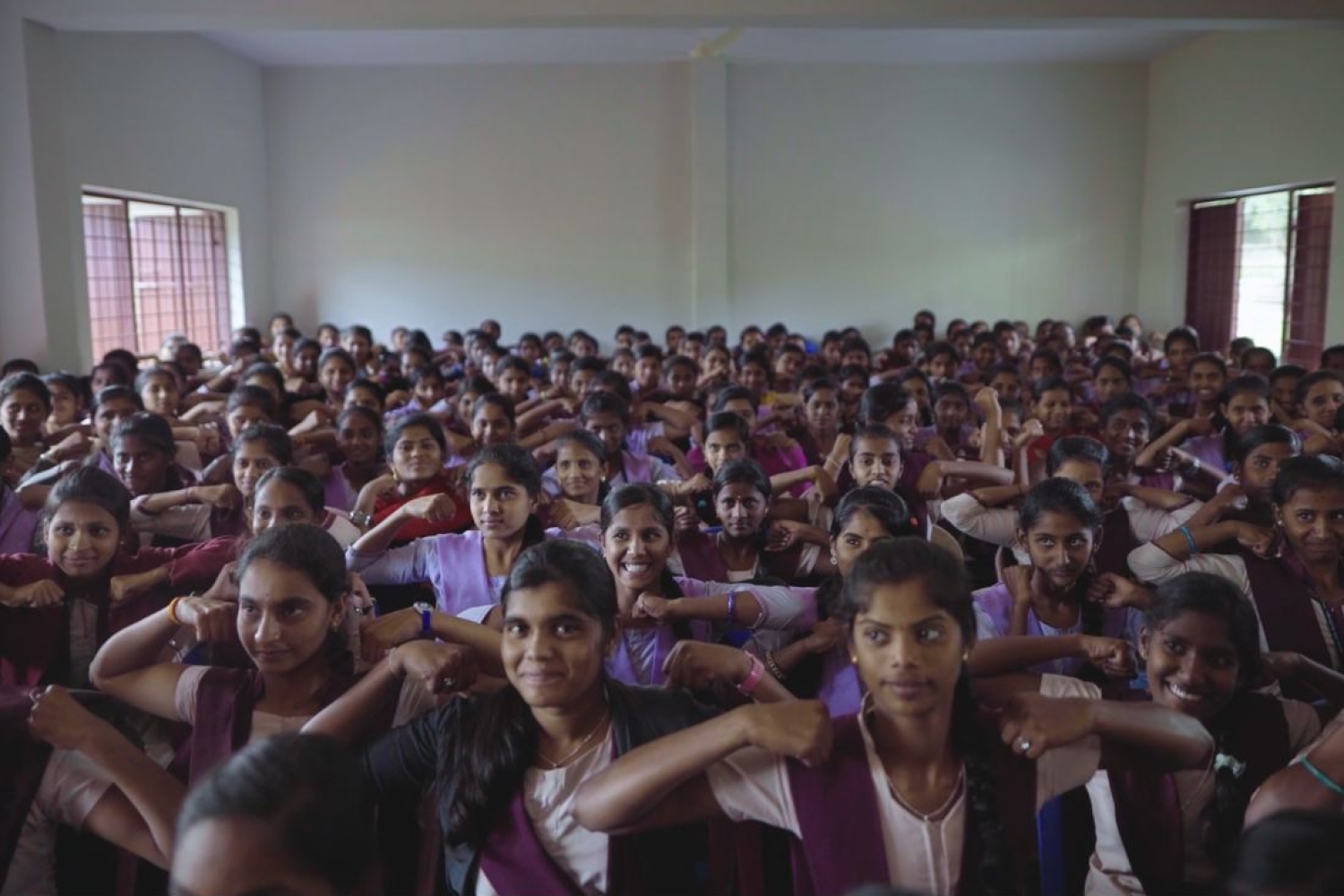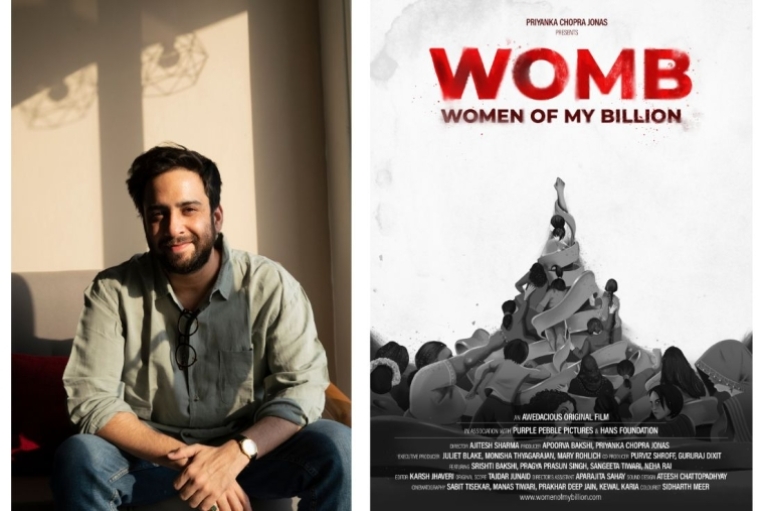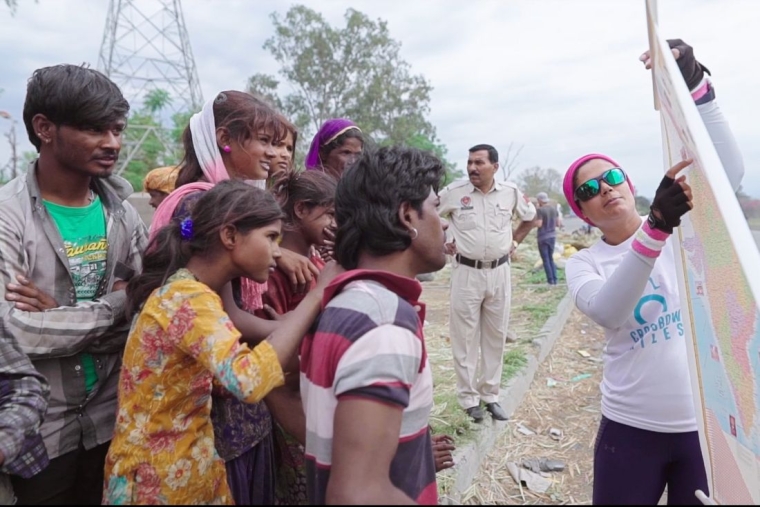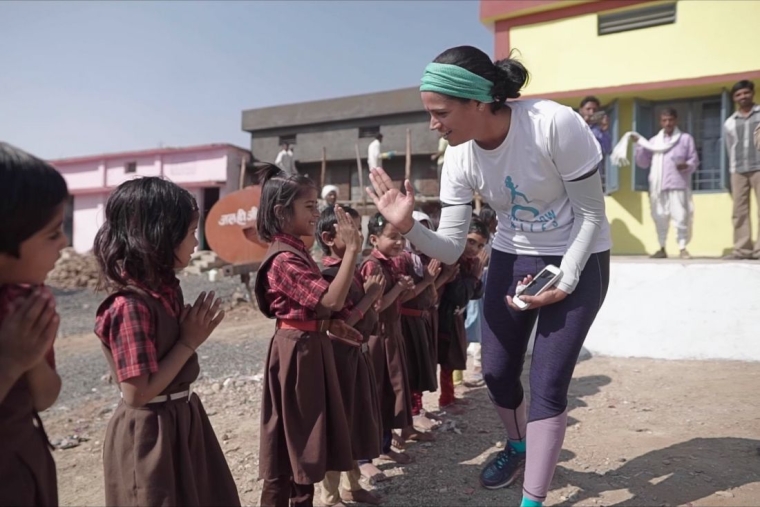

It’s easy for many of us to comfortably sit in our rooms and post about the misfortunes of our country on social media. Rarely, do we see someone going out on the streets to uncover the roots of violence and look at the ground reality. This passion of Srishti Bakshi’s walk struck a note with director Ajitesh Sharma. He tells us ‘I've always been vocal about everything—politics, sports or music. I love to talk about things. But with Srishti, I felt that this is many steps ahead of what we as people on social media do. Srishti just didn’t release the anger she felt about the world online but channelled that energy into something which became much more productive. So that's what inspired me because I could not have imagined myself walking from Kanyakumari to Kashmir to fight any issue because I mean we all are fighting with time. But here comes Srishti, she actually took a step from being an armchair activist and went on to the field. It really inspired me.’

Priyanka Chopra Jonas produced Women of My Billion on Prime Video chronicles gender rights activist Srishti Bakshi's 240 days journey from Kanyakumari to Kashmir on foot, where she conducts workshops and tries to understand the ground reality of gender-based violence in India. It weaves together footage of Bakshi's journey interspersed with testimonials from three survivors of abuse and tries to highlight the state of being a woman in India. A retired army officer, Sangeeta Tiwari, shares her journey of failed marriages and the patriarchal torment she faced with widowhood. Pragya Prasoon Singh faced an acid attack by a stalker. Neha Rai went through horrific body shaming, marital rape and acts of perversity by her husband and in-laws. Sharma had shortlisted these three stories out of 300+ stories, he tells us ‘The biggest challenge was to shortlist the three protagonists because I had access to 300 + interviews and those were really important stories of survival. A part of me really wanted to put everything in the film.’

He has also worked on the critically acclaimed International Emmy Winner Delhi Crime S1, which was based on the real-life story of the Delhi gang rape that shook the country. It was interesting to understand what inspired him to explore the real-life violence that happens in our country on a day-to-day basis. He tells us, ‘As a male filmmaker, I realized that when you make a film on topics like these, you have to be very sensitive. This documentary changed me in a lot of ways. It made me a good listener, first of all. Apart from that, all my conversations with women associated with the movement gave me very different perspectives about how violence is perpetuated in India. I realized that it's very important to start acknowledging whatever is happening around me, be it violence or be it any kind of inequality.’
Coming from the small city of Bhopal, filmmaking didn’t come easy to Sharma. ‘I never knew I could become a filmmaker till someone actually told me that you can be one. Back in the day, we had no exposure. I thought only people from Bombay can consider being a filmmaker.’ Documentaries paved an exciting way for me to explore the art and deliver stories that act as the preserver of time—‘When I discovered how a film is made, I realized that documentaries are literally documentation of time and this idea really excites me. For me, a documentaries became like a statement of time in the future. But at the same time, fiction is something which I want to do and I'm doing it next. The difference in documentaries and fiction is that documentaries allow you to make mistakes and rectify it, whereas fiction, it's all scripted. It's all written and formed. So you can't change anything once you've shot.’

One cannot fail to notice the immense recognition that Indian documentaries are receiving nowadays. With award-winning documentaries like All That Breathes, While We Watched and The Elephant Whisperers, the shift from mainstream to documentaries is really fascinating yet there is a long way to go. Sharma shares ‘I feel very inspired when I see documentaries doing good because then as a filmmaker, I feel there is hope but at the same time, I will say that the market in India is still not accepting them at all. It is very difficult for a docu-filmmaker to get distribution. In every corner there is a documentary filmmaker with a documentary idea or a film sitting with them but not getting the opportunity to make it because of the market.’
At the end of WOMB, Bakshi is joined by many people in her walk against gendered violence. Though there are still miles to go in the journey toward a future free from patriarchy, the unity and motivation that Bakshi receives from those who joined her walk, along with the filmmaker who documented this movement, signifies the impact she has had on the lives of many women. Stories of such courage need to be heard, and documentaries like this deserve our support to help create a market for them so that these snippets of extraordinary lives can reach us.
Words Paridhi Badgotri
Date 16.05.2024